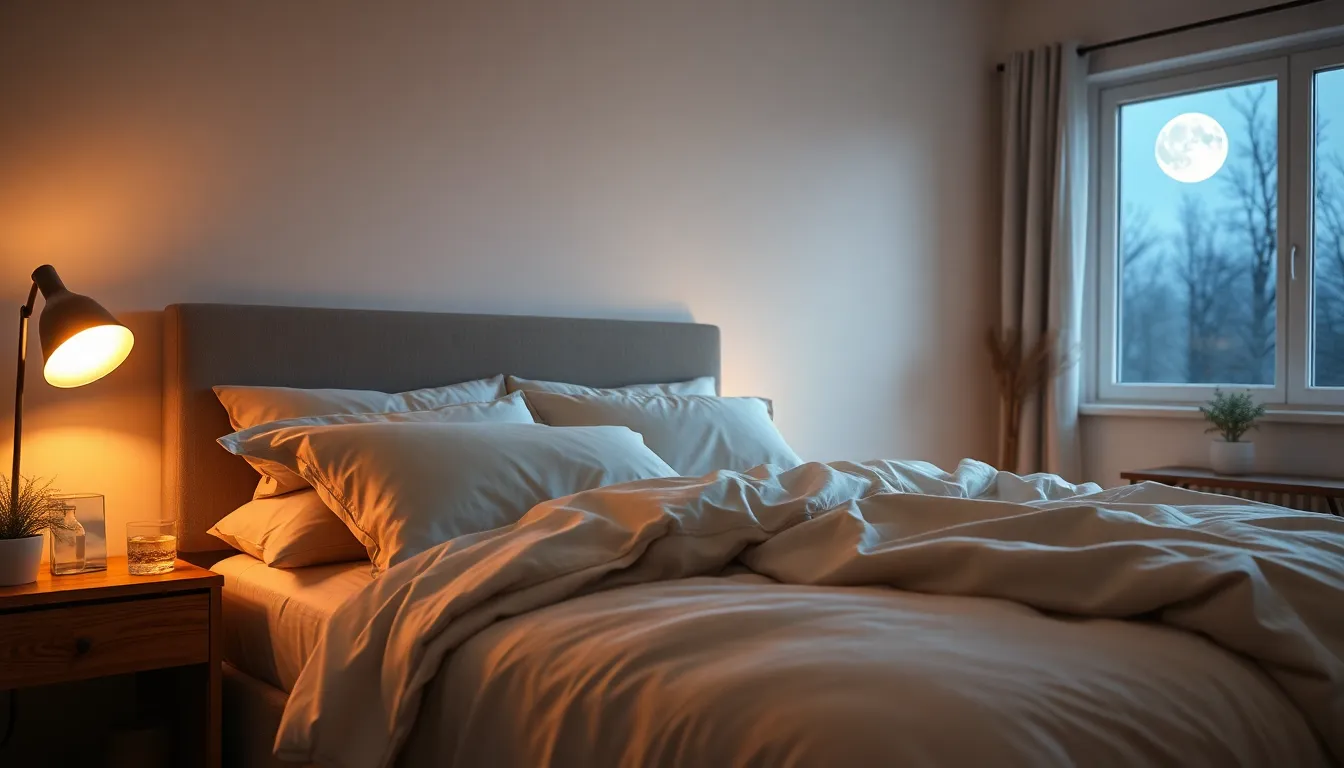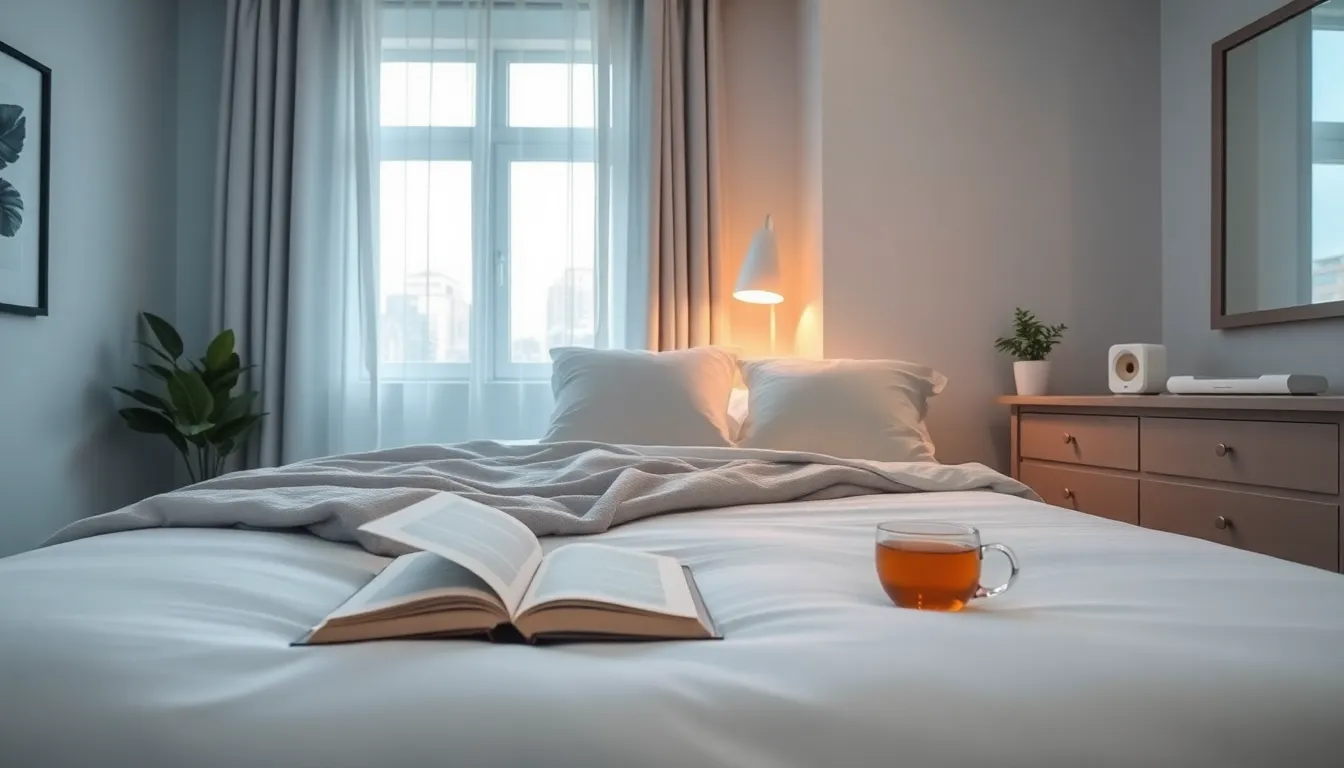Sleep is like the ultimate power-up for our bodies, yet countless people toss and turn each night like they’re training for the Olympic gymnastics team. If you’ve ever woken up feeling as fresh as a soggy sponge, you’re not alone. This guide dives into the importance of catching those Zzz’s and offers tips to change your bedtime game from ‘meh’ to magnificent. Let’s help you transform your nights from restless to restful, shall we?
Table of Contents
ToggleUnderstanding the Importance of Sleep

Sleep plays a crucial role in not just physical health, but mental wellness too. It’s during those hours of shut-eye that the body goes into repair mode, fighting off ailments and boosting immunity. Without adequate sleep, cognitive functions start to falter. Decision-making becomes muddled, and concentration dips, putting a damper on even the best-laid plans. In essence, sleep is not just a luxury: it’s a necessity, a time frame where the body recharges and resets.
Effects of Poor Sleep on Health
The ramifications of poor sleep extend far and wide. Lack of sleep can lead to mood swings that would make a roller coaster look tame. Anxiety increases, and stress levels take a nosedive to the upside-down. On the physical side, sleep deprivation is linked to a variety of health issues from obesity to heart disease. Yes, that’s correct. Those late-night Netflix binges aren’t just robbing you of rest: they’re also putting a strain on your health. Regularly skimping on sleep can even shorten your lifespan. It’s a hefty price to pay for a few extra episodes.
Creating an Ideal Sleep Environment
Now that we’ve stressed the importance of sleep, let’s jump into how to create a sanctuary for slumber. Begin by decluttering the bedroom. An organized space allows for a more organized mind. Next, consider the temperature: studies suggest that cooler rooms promote better sleep. Darkness, too, plays a pivotal role. Heavy curtains or a good eye mask can block out pesky light. Sound insulation is crucial, too. White noise machines or earplugs can help drown out distractions. The goal is to create a space that whispers, “Relax, you’re in a haven.”.
Establishing a Relaxing Bedtime Routine
Think about how a good pre-sleep routine can signal the body that it’s time to wind down. This might include activities like reading a calming book, doing gentle stretches, or practicing meditation. Consider dimming the lights an hour before bed. Let your body’s internal clock know it’s time to rest. Avoid screens during this time. The blue light emitted can confuse the brain and delay the onset of sleep. Instead of scrolling through social media, try to replace that habit with relaxation techniques. Establishing these rituals can encourage a natural transition into sleep.
Tips for Falling Asleep Faster
Struggling to fall asleep can feel like an endurance test. To combat this, try to maintain a consistent sleep schedule. Going to bed and waking up at the same times, even on weekends, helps regulate the body’s internal clock. Besides, consider limiting caffeine and heavy meals close to bedtime. Introducing deep breathing exercises into your routine can also ease the transition into sleep. If thoughts begin to race, journaling just before bed can help clear the mind and reduce nighttime anxiety.
Natural Remedies for Better Sleep
Sometimes, nature provides the best solutions for sleeplessness. Herbal teas, such as chamomile or valerian root, can promote relaxation. Certain essential oils, like lavender and sandalwood, work wonders when diffused in the bedroom or used in a pre-bedtime massage. Melatonin supplements may also provide assistance for individuals struggling with sleep-wake disorders. But, it’s vital to consult a healthcare professional before taking any new supplements. Everyone’s body is unique, and finding the right remedy is all about experimentation.
When to Seek Professional Help
When the standard strategies fall short, it might be time to consult a sleep specialist. Individuals experiencing persistent sleep difficulties or disorders, like insomnia or sleep apnea, should not dismiss these issues. It’s essential to seek professional evaluation when sleep struggles interfere with daily life, mood, or health. A healthcare provider can offer tailored advice and treatments that are more effective than any do-it-yourself approach.



